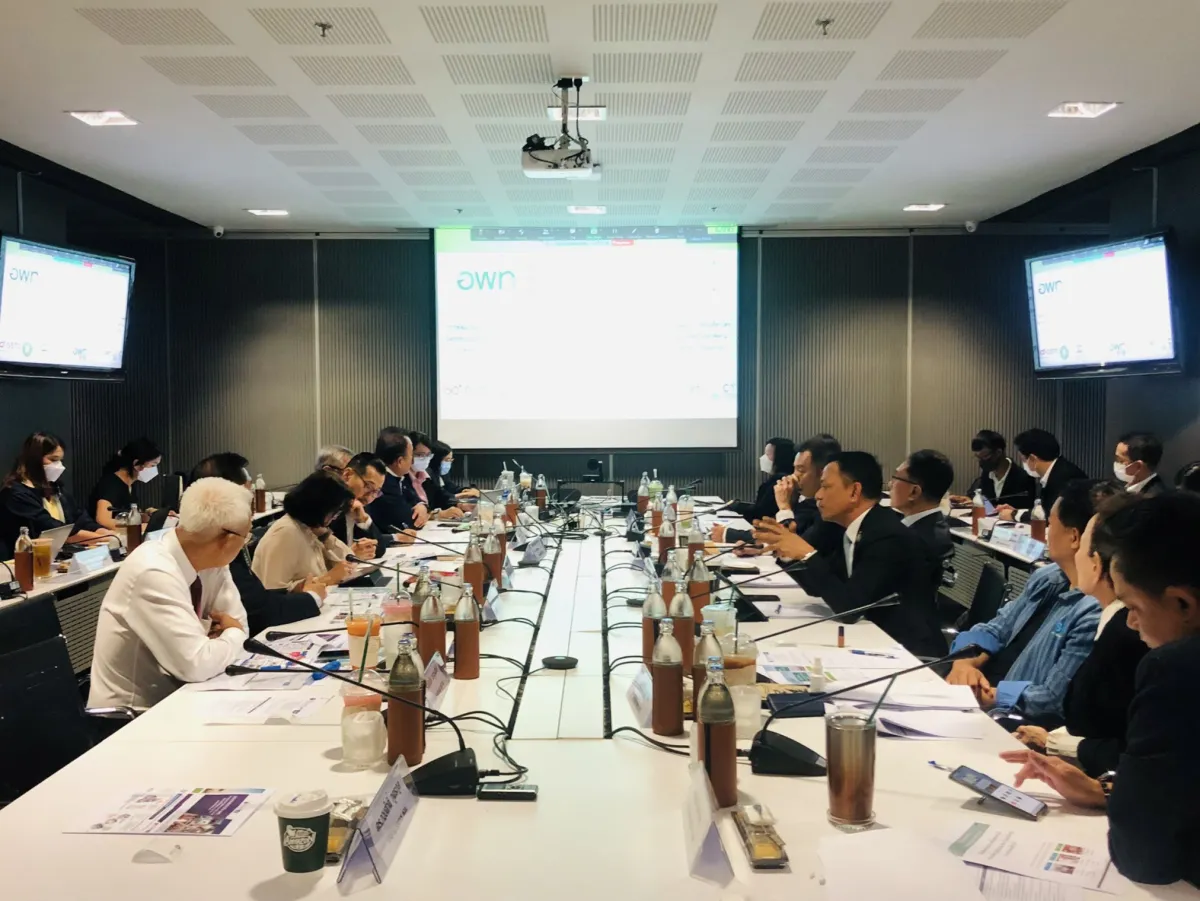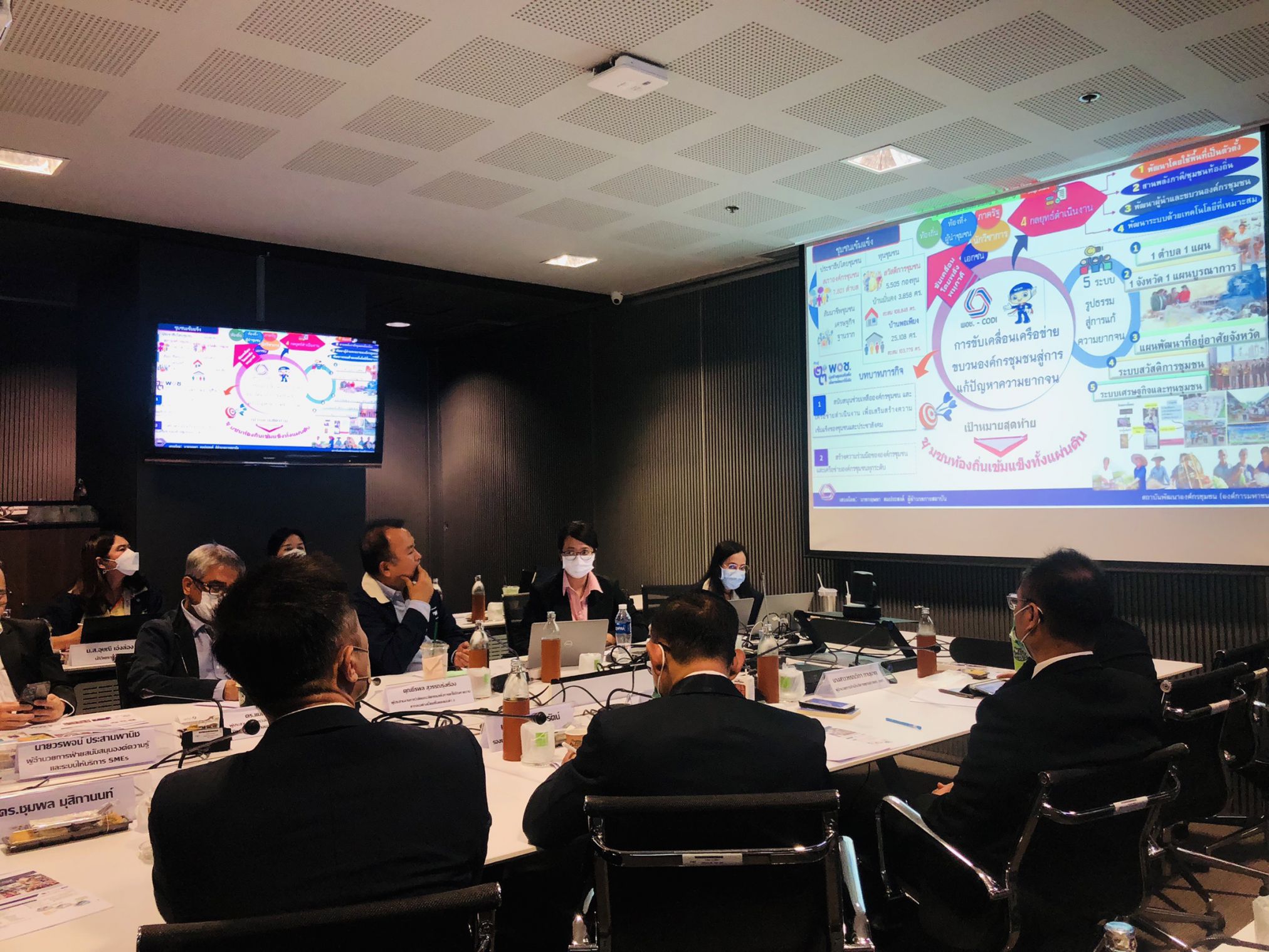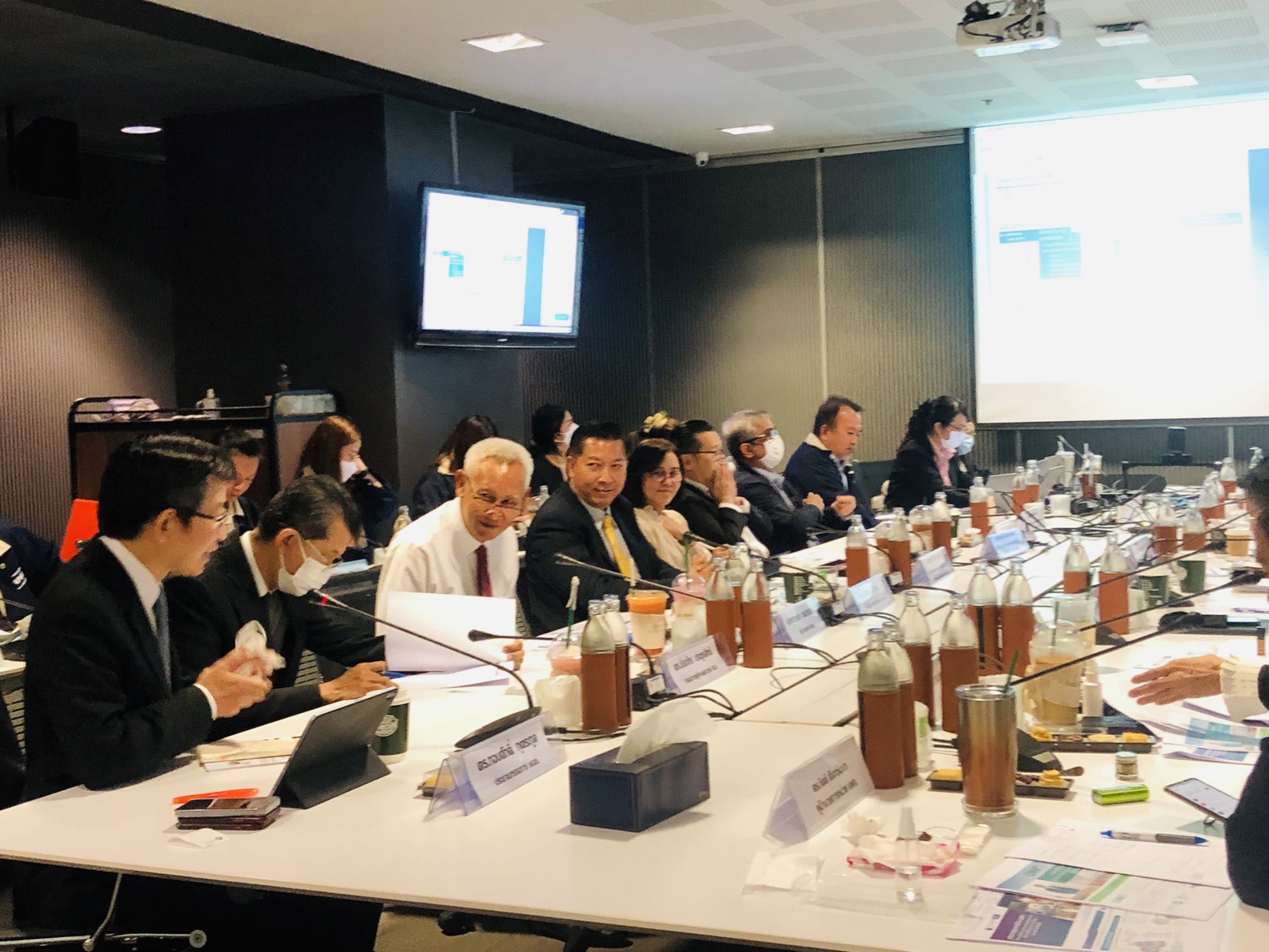
Four state organizations work together to eradicate poverty and elevate the grassroots economy
Cooperation from all sectors is necessary to elevate the grassroots economy and achieve sustainable poverty eradication. Furthermore, building a network of research and development at the local level is essential to ensure fair and equitable operations. Therefore, the Program Management Unit on Area-Based Development (PMU A) has collaborated with the Community Organization Development Institute (CODI), the Office of Small and Medium Enterprises Promotion (OSMEP), and the Designated Areas for Sustainable Tourism Administration (DASTA) to work together to strengthen the grassroots economy and solve poverty problems.

Guidelines for joint operations of the network partners of the four state organizations are as follows:
1. There are common goals in the two main target groups:
(1) There are people in poverty and low-income households in the area, according to the Thai People Map and Analytics Platform (TPMAP), which covers over 6 million people nationwide (according to the new index on income and living standards), as well as the Practical Poverty Platform (PPP Connext), based on from the research of the Ministry of Higher Education, Science, Research, and Innovation (MHESI), in over 20 disadvantaged provinces, covering more than 900,000 people;
(2) Upgrading the grassroots economy through community-based businesses (Local Businesses), including OTOP community enterprises and local SMEs that share common characteristics, such as being community businesses that employ workers in the area, use local resources, and have a structure for distributing income. The total number of community entrepreneurs in the country is over 2 million.
2. Create and apply practical innovations and technologies in the Ministry of Higher Education, Science, Research, and Innovation’s database to enhance the leadership capacity of the local community developed by CODI, in developing the community, particularly in economic and occupational development.
3. Create jobs and professions in the local community, including establishing community entrepreneurs, particularly in expanding community-based tourism from the OSMEP, to generate a circular economy in the area and create a sense of local pride and the development of their own community for the younger generation.
4. Develop community entrepreneurs and businesses with the potential for business operations and create value chains that can draw the poor out of poverty to become consistent income earners. This will be achieved by expanding research from MHESI and driving policy support from the CODI.

A joint working group will be established to drive collaborative work. Strategic work areas will be identified in three categories: areas with concentrations of low-income households, areas with universities as the focal point linking all sectors, and areas with reliable data systems to connect network communities for joint development as a provincial-level model.
Source: Office of National Higher Education Science Research and Innovation Policy Council (NXPO)
Address: 319 Chamchuri Square Building, 14th Floor, Phayathai Road, Pathumwan, Bangkok 10330
Tel. +66 2109 5432